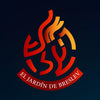
The big day "Hoshana Raba"
It is the last day in which we will comply with the precepts of the four species and to dwell in the Sukkah, this day is called Hoshana Rabá literally "The Great Hoshana" because in it more are recited Hoshana prayers than other days.
This day is also known as the day on which "the Arava" is struck (the willow branches, a custom dating from the time of the Prophets)
On this day, the The people of Israel do not rely on their righteousness, nor on the merits they have obtained in the course of the year, nor on the merit of their ancestors, but rather they ask for life "for themselves and for all humanity" Only to through the merit of their prayers, addressing the Eternal:
"Master of the Universe, we appear before You poor, and empty-handed. We lack everything, we have no knowledge of Torah, Mitzvót, good deeds, nor the merit of our parents.
We only have our mouths, with which we pray only to You. that we offer with broken and contrite hearts "
Hoshana Rabbah, marks the day on which the judgment that began on Rosh HaShanah, at the beginning of the period" Ro sh Hashanah - Yom Kippur "All the inhabitants of the world go one by one before G-d to be examined, during the Sukkot festival, everyone is judged regarding water, fruits and agricultural production.
On the seventh day of the festival, "Hoshana Rabba" is when said sentence is sealed and confirmed, since human life depends on water, and everything is based on the final decision, Hoshana Rabba is invested with an essence similar to that of Yom Kippur, characterized by prayers and profuse repentance.
There is a custom dating from the time of the Prophets Jagay, Zejariá and Malaji, which consists of taking a bunch of Aravot (kosher River willows) and recite a special prayer, then slam it to the ground.
Unlike other Rabbinic obligations, no Bracha is recited on this practice as it was promulgated more as a custom than as a Mitzvah (precept)
It is customary to stay awake on the night of Hoshana Rabba and receive Having a special Tikun and reading the book of Devarim (Deuteronomy) as well as reciting the entire book of Psalms, "uniting" in this way the day and the night through study and prayer, some very scrupulous in Mitzvot immerse themselves: the la Mikvé (ritual bath) before dawn.
(Excerpts from Sefer Hatoda, Sucót, Hoshana Rabá)
We wish you the Chag Sameach!
The Garden of Breslev recommends you:
